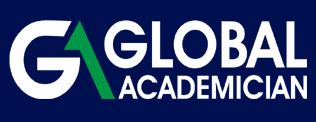
|
Citation Indices
|
All
|
Since 2016
|
|
Citation
|
1889
|
1814
|
|
h-index
|
15
|
15
|
|
i10-index
|
50
|
47
|

|
Acceptance Rate (By Year)
|
|
|
Year
|
Percentage
|
|
2022
|
13.14%
|
|
2021
|
14.26%
|
|
2020
|
11.8%
|
|
2019
|
16.3%
|
|
2018
|
18.65%
|
|
2017
|
15.9%
|
|
2016
|
20.9%
|
|
2015
|
22.5%
|
Engineering Journal IJOER publishes articles of international interest from all areas of Engineering research and Science. The Journal is an international publication organization aims to publish research articles in the field of Engineering Research and Sciences. The aim of the journal is to offers scientists or researchers with expertise in Engineering Research and Sciences to share their systematic research outcomes with the real world or with new professionals who are doing best in this field. Engineering Journal IJOER is a worldwide monthly journal managed by AD Publications, Bikaner, and Rajasthan, INDIA since April 2015.
As in the open access platform there is exchange of ideas plays an essential role in the academic research, as often it is only by conversation with others that can be fully possible to process data or concept. Therefore, researchers generally are motivated to get involved in conversations with their research, and even their projects. To ensure the proper sources of results and outcomes of research work, plagiarism policy is adopted. Therefore Engineering Journal IJOER does not accept the article whose contents are copied from some other material. The contents should be acceptable only in the case that authors had mentioned the proper reference of the copied contents.
Plagiarism is the unethical act of copying someone else's prior ideas, processes, results or words without explicit acknowledgement of the original author and source. Self-plagiarism occurs when an author utilizes large part of his/her own previously published work without using appropriate references. This can range from getting the same article published in multiple journals to modifying a previously published article with some new data.
Engineering Journal IJOER is strictly against any unethical act of copying or plagiarism in any information used in the article. Plagiarism is said to have occurred when any portions of an article have been copied from existing previously published work. All articles submitted for publication to Engineering Journal IJOER are cross-checked for plagiarism using Turnitin software or any reputed licensed software. Articles found to be plagiarized during any stages of review are out-rightly rejected and not considered for publication in the journal. In case an article is found to be plagiarized after publication, the Editor-in-Chief will conduct investigation committee for the purpose and will have to submit report to editor for the same. If the article is found to be plagiarized beyond the acceptable limits, Engineering Journal IJOER may contact the author's Institute / College / University and Funding Agency, if any. The article containing the plagiarism will also be marked on each page of the PDF. Upon determination of the extent of plagiarism, the article may also be formally retracted.
The following types of plagiarism are considered by the journal:
1. Full Plagiarism: Previously published content without any changes to the text, idea and grammar is considered as full plagiarism. It involves presenting exact text from a source as one's own.
2. Partial Plagiarism: If content is a mixture from multiple different sources, where the author has extensively rephrased text, then it is known as partial plagiarism.
3. Self-Plagiarism: When an author reuses complete or portions of their pre-published research, then it is known as self-plagiarism. Complete self-plagiarism is a case when an author republishes their own previously published work in a new journal.
Engineering Journal IJOER respects intellectual property and motive is to protecting and promoting original work of its authors. Articles containing plagiarized material are against the standards of quality, research and innovation. Hence, all authors submitting articles to journal are expected to follow ethical standards and abstain from plagiarism, in any form. In case, an author is found to be suspected of plagiarism in a submitted or published article then, journal shall contact the authors to submit his / her (their) explanation within two weeks, which may be forwarded to the Fact Investigation Committee (FIC) constituted for the purpose, for further course of action. If journal does not receive any response from the author within the stipulated time period, then the Director / Dean / Head of the concerned College, Institution or Organization or the Vice Chancellor of the University to which the author is affiliated shall be contacted to take strict action against the concerned author.
Upon having established that the article is plagiarized from some previously published work, Journal shall support the original author and article irrespective of the publisher and may take any or all of the following immediate actions or follow the additional course of actions as recommended by the committee:
1. Editorial office shall immediately contact the Director / Dean / Head of the concerned College, Institution or Organization or the Vice Chancellor of the University to which the author(s) is (are) affiliated to take strict action against the concerned author.
2. Journal shall remove the PDF copy of the published article from the website and disable all links to full text article. The term Plagiarized Article shall be appended to the published article title.
3. Journal shall disable the author account with the journal and reject all future submissions from the author for a period of 03 / 05 / 10 years or even ban the authors permanently.
4. Journal may also display the list of such authors along with their full contact details on the journal website.
5. Any other course of action, as recommended by the Committee or as deemed fit for the instant case or as decided by the Editorial Board from time to time.